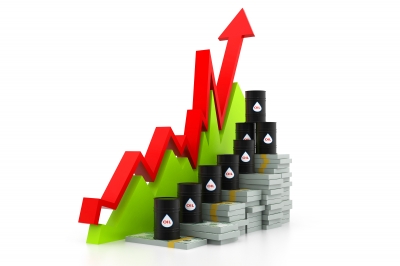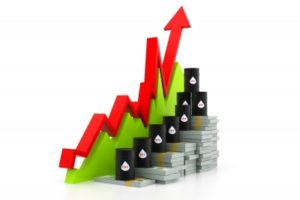Philippine cargo transport service providers said the higher excise tax on petroleum products to be implemented by next year under the recently passed Tax Reform for Acceleration and Inclusion (TRAIN) bill will inflate operational costs that will eventually be passed on to stakeholders and consumers.
The Senate and House of Representatives on December 13 ratified the bicameral conference committee report on TRAIN, the first package under the government’s Comprehensive Tax Reform Program (CTRP).
The TRAIN bill will now be up for approval by President Rodrigo Duterte for implementation next year, as scheduled by the Department of Finance (DOF).
Included in the legislation is a staggered increase in diesel excise tax from zero to P2.50 in 2018 and P4.50 in 2019 to P6 per liter in 2020.
For gasoline, excise tax will increase from P4.35 to P7 in 2018, P9 in 2019, and then P10 per liter come 2020.
Bunker fuel, which is used by sea vessels, will see the same increase in excise tax as diesel, while aviation jet fuel will have an excise tax of P3.67 in 2018 and P4 for 2019 and 2020.
For the period 2018 to 2020, the scheduled increase in fuel excise tax shall be suspended when the average Dubai crude oil price based on Mean of Platts Singapore for three months prior to the scheduled increase of the month reaches or exceeds US$80 per barrel.
DOF will also perform an annual review of the implementation of the fuel excise tax.
The fuel excise tax is one of the government’s measures to offset the loss of revenue due to the lowering of personal income taxes, which is also part of the tax reform.
Philippine Inter-island Shipping Association (PISA) executive director Atty. Pedro Aguilar told PortCalls in a text message that fuel accounts for 40% to 50% of a ship’s operational costs. A 2015 calculation by PISA member organization Philippine Liner Shipping Association (PLSA), however, put this figure at a lower but still considerable rate of 30%.
Aguilar said stakeholders should expect increases in shipping rates since the approved excise tax on bunker fuel is “substantial”. He said service providers will not be able to absorb the increase and will eventually pass it on to their customers.
Aguilar earlier said any addition to the price of fuel will jack up operational costs for vessels, which use bunker fuel for their engine and diesel for gensets. Since the domestic shipping sector is deregulated, ship operators may impose a fuel surcharge or a freight hike to counter higher operating costs, he noted.
Philippine Chamber of Arrastre and Stevedoring Operators president Benjamin Cecilio, in a separate text message to PortCalls, agreed that the increase in fuel excise tax will mean additional operating costs for arrastre and cargo-handling operators since “operations use substantial amount of fuel to move their equipment.”
“If operating costs will become onerous for the handlers, there will consequently be a need to increase handling charges,” he added.
Cost drivers, including fuel costs, is one of the grounds cited by arrastre and cargo-handling operators when asking the Philippine Ports Authority (PPA) for a rate increase. Cecilio noted, however, that an immediate increase may not happen since PPA takes time to approve any proposed rate hike.
Trucking rates may also increase due to the approved higher excise tax on diesel, which is used by truckers. Inland Haulers and Truckers Association (INHTA) president Teodorico Gervacio, in a phone interview with PortCalls, said the additional cost will surely trigger an increase in trucking rates, the amount to depend on market forces.
INHTA also has an agreement with PLSA that allows for a P172 increase in rates for every P5 increase in fuel prices, Gervacio noted.
Confederation of Truckers Association of the Philippines (CTAP) chairman Ruperto Bayocot told PortCalls in a text message that the higher fuel excise tax will affect end-users the most because truckers “will just pass on (the additional cost) to our clients.”
Earlier, CTAP vice president for external affairs Pepito Dino noted that trucking accounts for 35% to 40% of overall costs of manufacturers and producers. – Roumina Pablo
Image courtesy of hywards at FreeDigitalPhotos.net






